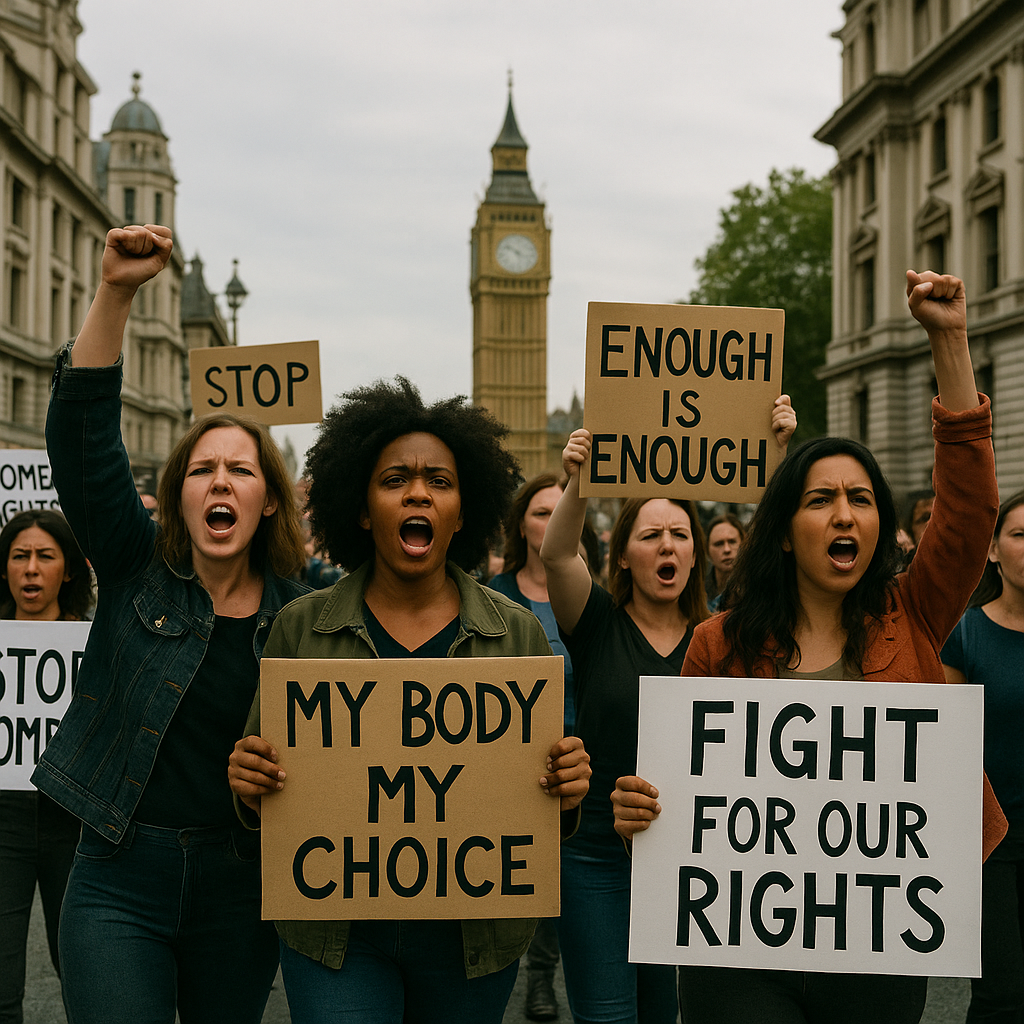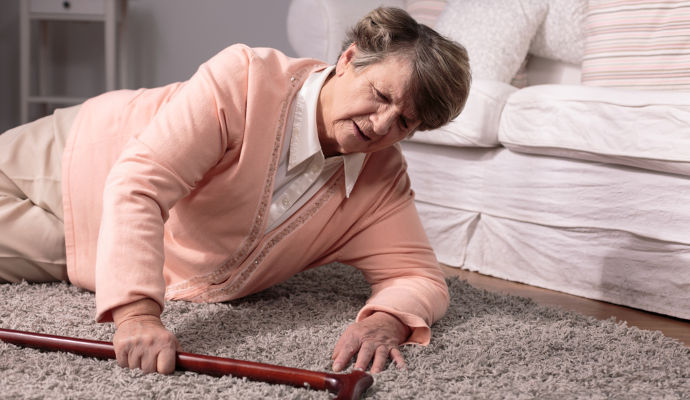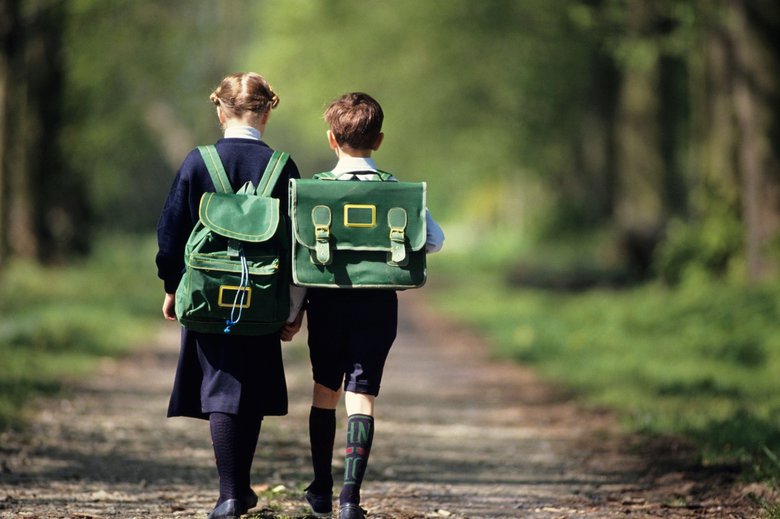The recent murders of 33-year-old Sarah Everard and 28-year-old Sabina Nessa have sent shivers down the spines of every woman in the United Kingdom.
These tragic events have sparked much-needed conversations around the safety of women in the UK. More and more women were sharing their stories and protesting about the lack of protection that the government and police are providing.
Thousands of women took to social media to share their personal stories of rape or sexual harassment - most prominently during the #MeToo movement. They shared how vulnerable and scared they were for their safety when walking alone in the outdoors.
This was exacerbated by the recent UK lockdowns, where getting outside was the only escape from being stuck at home all day. And for many women who work a traditional 9-5 job, it’s almost unavoidable to go outside during the dark mornings and evenings of winter now that most people are back to working in the office.
Almost one-third of women in the UK say that they feel unsafe or very unsafe when they are walking outside alone, especially during the night time hours or when running. Only 13% of men said the same.
A notable part of these conversations was the issues around gender inequality when it comes to crimes in the UK. The number of female homicides is smaller than the number of male homicides. Out of the 695 homicides in England and Wales in the year ending March 2020, 73% were men and 27% were women.
However, that does not mean women are not vulnerable to potential murderers. Women are also more likely to be the victim of rape or sexual assault.
Last year, almost five million women said that they had been sexually assaulted at some point in their lives. This is in comparison to less than one million men. It’s important to note that these figures are based on the number of reported incidents, and they do not include all of the assaults that were not reported to the Police - which is predicted to be a huge amount more.
Unwanted sexual touching is the most common form of sexual assault, and it is not the full story. There are several forms of sexual assault, including rape, domestic abuse, stalking, sexual touching, and harassment.
Figures from ONS for the year ending March 2020 showed that 3% of women between the ages of 16-74 were victims of sexual assault more than once.
So, this begs the question of whether enough is being done to convict offenders before they have a chance to commit another assault. It also begs the question as to whether enough is being done to tackle these issues that millions of women are facing every year in the UK.
Has There Been Any Progress in Making Women Feel Safer?
Data from back in the year spanning from 2002 to 2003 indicates that some progress has already been made.
Back in the early 2000s, just over half of all women in the UK who were surveyed said that they felt unsafe when walking in the dark. Compare that to a similar survey completed in 2020 and this number has dropped to around one-third (32%).
This is great news, but it’s far from the full story. There are still gender inequalities with regard to crimes in the UK. More women than men are the victims of rape and sexual abuse, and more women are expressing their concerns about their safety.
The majority of rapes and sexual assaults on women are carried out by men, with almost all (98%) of the female rape victims in England and Wales in the year ending March 2020 saying that the perpetrator was a man.
In a report by Plan International UK, two thirds of females aged between 14 and 21 say that they have recently experienced sexual harassment or unwanted sexual attention in a public area. Many of these women also said that they feel the need to change their behaviour whilst out in public to avoid being harassed.
For example, many women are choosing to sit closer to the bus driver whilst travelling on public transport or they are choosing to wear more layers of clothing to avoid being a target for unwanted male attention. Many women are searching for pepper spray alternatives, as it's illegal in Europe and they need other options.
Whilst it’s great that women are taking action to avoid being attacked, they shouldn’t need to take this action in the first place. Women deserve to feel safe wherever they are, and it’s not up to them to change their behaviour to deter potential attackers.
Women don’t feel safe in 2021, and this is clearly shown by recent reports and surveys by a number of organizations.
In fact, more and more women and girls are reporting that they feel intimidated or threatened even when they are walking with other people. These feelings are amplified in the dark hours of the night, but the recent killings of Sarah Everard and Sabina Nessa indicate that it’s not just the late evenings and night time hours that women need to feel worried.
With 78% of women being killed either in their homes or in the surrounding area, it’s unsurprising that they feel unsafe no matter where they are nowadays.
According to ONS, 81% of female homicides occurred in residential areas and 17% occurred in public places in 2010. Fast forward to 2020 and the data shows very little change, with 77% of female murders occurring in residential and 19% being in public areas.
The outrage on social media after these awful events highlighted this. More needs to be done to tackle the increasing concerns that women in the UK have.
But how can the UK become safer for women in the future?

What Can Be Done in the Future to Make the UK Safer for Women?
There’s definitely more that can be done to improve the rate of successful charges and convictions after women are killed.
Almost one-third of female homicide cases have resulted in no suspect being charged, arrested, and convicted. The majority of rape convictions are still not solved and even when they are, the perpetrator rarely received a significant sentence for their crime.
Only one in every five investigations around sexual assault or rape that are opened by the police result in a charge. This figure alone is enough to indicate the lack of improvement surrounding crimes against women.
Clearly, improvements can be made in the legal system to make the UK safer for women. If the convictions for rape and sexual abuse were stricter and the charges for murder were tougher, crime rates would likely see a drop.
More women should be encouraged to carry around personal safety alarms or rape alarms. These small electronic devices can be activated immediately if a woman comes under attack. They emit a loud 130dB siren and flashing strobe to draw attention to the situation.
See How Safety Alarms Work
Personal safety alarms also act as deterrents to put off potential attackers. Attackers who see a vulnerable woman walking alone are less likely to make a move if they see a personal safety alarm around the woman’s neck. Although personal safety alarms (also known as rape alarms) can be used - it does not solve the problem completely. We need the government to help.
Something else that must also be addressed is the fear that many women still hold around speaking up. Almost half of all women feel embarrassed after being a victim to sexual abuse crimes, and many of them feel like filing a claim would make very little difference to the outcome of their attacks.
Even in 2021, less than one in every six victims of rape or sexual assault go to the police. So, more needs to be done to make women feel comfortable speaking up.
And this does not exclude school-aged females. Education surrounding these events needs to be improved so that girls know from a young age what is classed as harassment or abuse. Every female, no matter what age, should feel like their voices will be heard when they do raise their concerns. Situations when young girls are being spiked at university need to stop, we need to be louder.
Women need to feel empowered instead of being frightened to say anything. They need to feel comfortable and confident that their voices will be heard when they do.
In the aftermath of the abduction and murder of Sarah Everard in March of this year, the government has said they are going to invest £45 million into the Safer Streets fund to improve CCTV and street lighting.
There has also been the suggestion to place more undercover police officers in nightclubs and bars to increase the protection of women and reduce violence against them. Around 650 new police officers are going to be patrolling the busy areas in London.
These changes sound very promising and there’s hope that they will lead to the changes that women across the UK are hoping for.




















Leave a comment
This site is protected by hCaptcha and the hCaptcha Privacy Policy and Terms of Service apply.